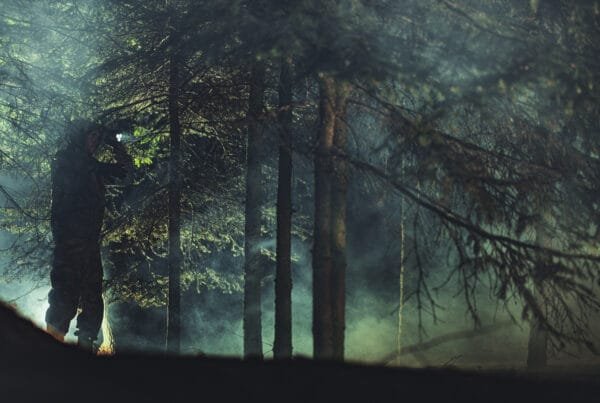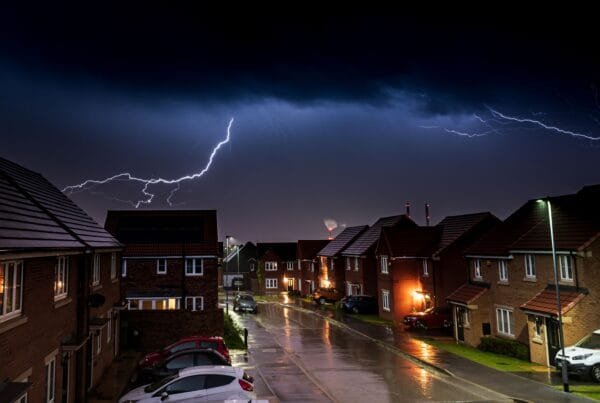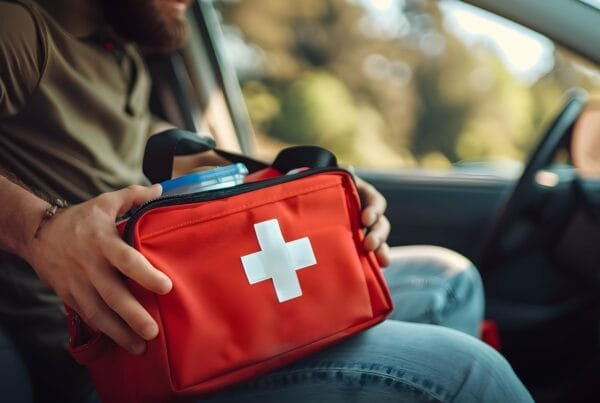Are You Ready?
Was there a distinct time in your life when you realized that you were utterly unprepared for a crisis? For me, it all started with a novel. In 2018, I read Cormac McCarthy’s post-apocalyptic book, The Road. It’s a haunting story about a father and son traversing the wasteland of America.

In the story, most of the global population has died off due to a nuclear conflict. Survivors are left to scavenge the devastated landscape for nonexistent resources, evading marauders and cannibals at every turn. While the book is 100% fiction, its warnings to us in the real world are clear: don’t let yourself be caught off guard.
How Can You Insulate Your Family From a Crisis?
Maybe the reason the narrative hit home for me at the time was that I was a new father. It was hard to separate the plight of the main character from the feeling that I was utterly unprepared for anything to go seriously wrong. What could I do to insulate my family from events that were outside of my control?
Around this time, we moved from Texas to the Pacific Northwest. I found myself living off the coast of Seattle, in a part of the country overdue for a catastrophic earthquake and tsunami.

This led to some new, unsettling questions. If a major natural disaster knocked out the supply chain, utilities, and drinking water in my area, how long could we survive with the supplies we had on-hand? Unlike the scenario of The Road, this earthquake was a matter of when, not if.
The more I thought about it, the more I realized that there were many different threats that could disrupt the basic structure of society, which I had come to assume was more or less immutable. Turn off the power for more than a few weeks, and everything else – food, water, fuel, civility – all of it will fail. Rather than continue to worry, I decided to become more resilient. Turns out this was easier said than done.
Making a Crisis Readiness Plan
I got online and started researching emergency preparedness in my free time. I quickly learned that being ready for a crisis meant different things to different people. For some, having supplies to weather a twenty-four hour power outage was reasonable. For others, everything short of a zombie apocalypse was on the horizon. Was there a happy medium?

Since Failstate didn’t exist yet, I rolled up my sleeves and committed to learning the hard way, sifting through countless books, podcasts, videos, and courses from a wide range of sources. Some of the information was highly valuable. Much of it lacked substance, or devolved into fear-mongering. Many pundits claimed that the only way to be prepared was to move to the countryside and hunker down. That wasn’t realistic for my family.
Over time, I realized that there was actually a methodical, layered strategy to crisis readiness for the typical urban or suburban family. Trying to tackle everything at once was overwhelming and unrealistic. Instead, you could start with the basics and build from there. It was essentially a triage approach – cover the essentials, then expand.
Six years later, that’s why we modeled Guide to Disaster Readiness as a launching off point for crisis readiness. Once you’ve tackled the first step, you can prepare your home for grid down and plan for an emergency evacuation. When taken in logical order, these action items are achievable for any household, and they cover the vast majority of realistic threats on American soil.
Seek Out Crisis Readiness Experts
Another take away from my own research was that it can be a chore to sort between trustworthy resources and the multitude of so-called “experts” who lack real-world experience. I also concluded that no single individual can be a true expert in crisis readiness across the board.

With so many facets to this field (first aid, personal security, response planning, and emergency water and food storage – just to name a few), it would be almost impossible for one person to be a master of them all.
That’s why when we search for Failstate instructors, we look for individuals who are qualified to teach specific topics. Whether they come from military or civilian backgrounds, what Failstate instructors have in common is that they have become experts through real-world experience.
Parting Thoughts
Is the scenario of The Road something that’s likely to happen? Probably not, although Annie Jacobsen sure seems to think so in her 2024 NYT bestseller, Nuclear War: A Scenario.
But even if it’s possible, a nuclear armageddon isn’t something that most of us can realistically prepare for. Instead, we should put our focus on likely threats. Natural disasters, civil unrest, and grid-down scenarios are all virtually guaranteed in the future.
If you are just starting out in your crisis readiness journey, I would encourage you to take the first step. You don’t have to get ready for every possible scenario overnight. You don’t need to spend thousands of dollars on equipment and food. What I believe you’ll find is that with each small step, you’ll feel increasing peace of mind about your family’s safety and security in turbulent times.
And if you’re still on the fence about crisis readiness, do yourself a favor and order a copy of The Road. If you’re like me, it just might be the push you need.





